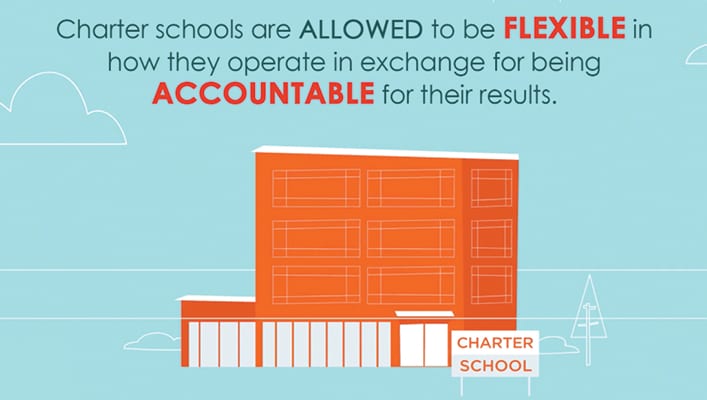
Charter School Capital’s Values: Empowerment
Sharing our Values
At Charter School Capital, we hold each other accountable to core company values as the driving force and foundation of what we do. These values are our guiding principles as we work together to more effectively support the growth and development of our charter school partners. And, as a result, Charter School Capital is a proven catalyst for charter school growth. In CSC’s ten years, we very proud to say that we’ve helped finance the education of more than 800,000 students in over 600 charter schools across the United States.
We measure everything we do by these core values:
- Best-in-Class
- Empowerment
- Innovation
- Teamwork
- Accountability
In this blog series, we wanted to spotlight how all of us at CSC work to exemplify these core values. For this, the second post of the series, we’ll dive deeper into what empowerment means to us and how we embody and reflect this goal both internally and with our charter school partners.
After over one month here as a member of the Charter School Capital team, it’s already become clear to me—and quite refreshing—that our values are, indeed, a way of life here. They’re simply woven into the fabric of daily life at the office. It’s so refreshing to be a part of such a healthy non-siloed environment where there’s a shared passion and mission infusing every action. The claps and cheers reverberate through our all-hands meeting as our President and CEO (co-founder), Stuart Ellis shares our goal to reach one million students served this year.
Empowered as Individuals
 To get some expert insight into how we strive to live up to the value of Empowerment, I sat down with Corey Brock, Senior Paralegal for Charter School Capital (CSC). Corey has been with Charter School Capital for five years so has seen our rapid growth and been instrumental in being a part of our cultural development. He was selected by CSC leadership as the embodiment of the Empowerment value here at CSC, so I was really looking forward to getting to know him better—and learn why he was chosen as our representative for this value. And, after meeting with him, as it did with Nancy Edmiston in our Best-In-Class values post, it became clear.
To get some expert insight into how we strive to live up to the value of Empowerment, I sat down with Corey Brock, Senior Paralegal for Charter School Capital (CSC). Corey has been with Charter School Capital for five years so has seen our rapid growth and been instrumental in being a part of our cultural development. He was selected by CSC leadership as the embodiment of the Empowerment value here at CSC, so I was really looking forward to getting to know him better—and learn why he was chosen as our representative for this value. And, after meeting with him, as it did with Nancy Edmiston in our Best-In-Class values post, it became clear.
When I sat down with Corey, I really wanted to understand what he thinks CSC means when we talk about empowerment—and how our company not only empowers its employees to be their best, but how we empower the schools we work with to achieve and even exceed their goals.
So, I began by simply asking how he feels he’s empowered here, in his own job, at Charter School Capital. “I’m allowed by the leadership members that I work with to constantly be thinking outside the box and find creative solutions … if you see something that needs doing, you just go do it. And then if you see a need that we have, by all means, take it, run with it and make it your own. Empowerment here actually equals creativity and flexibility,” Corey explained.
He recognizes that this spirit of empowerment has a broad effect on the entire CSC team as he seen coworker after coworker “not only growing their careers but growing as people.” He’s seen so many people move up in the organization because, in large part, they’re empowered to “think outside the box they were put in.”
“Empowerment here actually equals creativity and flexibility.” ~Corey Brock
Empowered to Face Challenges
I asked Corey how he felt CSC’s spirit of empowerment plays a part in helping employees overcome any challenges they may face. He was unhesitant in his response. “The leadership has empowered me to take on challenges, and this shows me that they trust my work and that, in turn, fosters trust. They don’t give you work you can’t handle—and there’s no fail here. Yes, there are times that maybe things didn’t go as planned, but the thing that I’ve always been impressed with is, when that happens, you’re not viewed as though you’ve failed. It’s like, OK, this is an opportunity to grow, and then … how do we move on from here?”
“I’m also empowered to speak up. I feel more empowered to raise my hand when I see something going off the rails or something’s just not working. This is one of the few places that I’ve ever worked at that I actually have a voice.”
Empowering Charter Schools
After feeling inspired and ready to conquer the world based on Corey’s explanations of how our leaders empower employees here to be creative and innovative without fear, I really wanted to understand how he thinks all of this translates to our customers. How do we empower our charter school partners in the same way we inspire that spirit internally?
“I’m so comfortable with everyone I work with, especially leadership, and I feel like that comes from the empowerment that they have given to me. The spirit of CSC is that whatever you do, whatever your role is, whatever you are brought in to do you, you are part of the success. I truly feel that they have my back, and that is extremely inspiring.” ~Corey Brock
“One of our mottos is ‘We’re here to help,’ and we are. Our schools are not static, cookie-cutter organizations. They have a plan or a mission, and sometimes they need a little assistance reaching their goals. We’re empowered to help them to do that. We as a company, and we as employees have to be able to be as creative and flexible as possible to meet their specific needs at specific times, help them improve their financial health, or just help them grow … and we empower our schools by giving them the stability that they may need,” shares Corey.
“Our founders and employees are incredibly passionate about charter schools. I’m excited to be a part of a mission-driven company where everybody really is here to support the birth of these charter schools and help them be successful.”
He goes on to explain that we partner with our schools to balance each other’s’ strengths. “We’re saying, you don’t need to worry about x, y, and z. You can focus on what you’re really trying to accomplish. Let us worry about this part of for you.” To me, that feels empowering. By doing what we do best, we enable school leaders to focus on their true goals—educating students.
Conclusion
I feel like the best leaders I’ve ever had were those who saw my strengths and enabled me to find and implement creative, innovative solutions to challenges without fear of failure. And what I’ve learned from Corey, is Charter School Capital understands that by empowering each team member in this way, we’re ultimately empowering the success and growth of the charter schools we serve—and the charter movement as a whole. These words, these values, are not just lip service here at CSC, “Words like best-in-class, and empowerment … they are in our daily, our hourly lexicon,” says Corey. “They are just part of our culture now.”
 Janet has deep experience in strategic planning, brand management, positioning and go-to-market strategies. She’s run global marketing teams for education technology, cloud automation, and technology (SaaS, enterprise software) companies.
Janet has deep experience in strategic planning, brand management, positioning and go-to-market strategies. She’s run global marketing teams for education technology, cloud automation, and technology (SaaS, enterprise software) companies. Stephanie manages demand generation programs for Charter School Capital and has spent the duration of her career with big brands like Microsoft, Nike, and WebMD.
Stephanie manages demand generation programs for Charter School Capital and has spent the duration of her career with big brands like Microsoft, Nike, and WebMD.





 FREDDY MENDOZA
FREDDY MENDOZA






